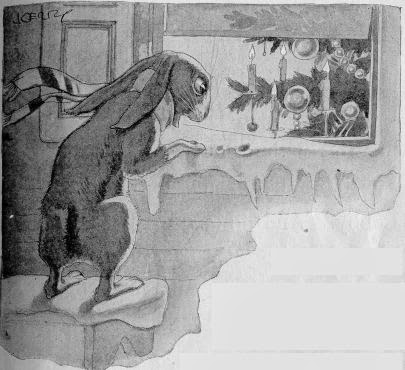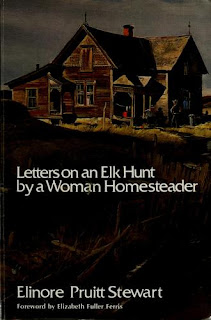Original Publication Date: 1919
Genre: mystery, humor
Topics: class, coming of age
Review by Patty from A Tale of Three Cities:
I hadn't realised that one of my favourite great TV series I've watched over and over again, Jeeves and Wooster, was actually based on the books by PG Wodehouse. My Man Jeeves would be my first in this collection to devour and feel good about it.
This is a collection of short stories that starts with the known couple of Wooster and his butler extraordinaire Jeeves. Primarily describing their adventures in the US, the stories capture the caricatures of the ever so slightly neurotic Wooster on the one hand and of the charismatic and suave Jeeves, trying desperately to get and keep his master out of trouble.
There is an expected template of story--once you get to understand the steps to it, all other stories are in the same format. Not that repetition takes away anything from the pure enjoyment, far from it! Wodehouse gets us back to the early 20th century at the upper-class establishments, where the young (nobility, but of a lesser importance) adults take advantage of their station and get into all types of mischief - getting into girl trouble, depending on the relative's financial contribution, trying to make it into the world as a professional - there is always something for every taste.
The stories are written in a style as if the narrator (in most of the stories Wooster) is a pal of ours and he's talking to us about his misfortunes--the language is very simple and slightly slang, with a quick tempo so as to ensure an easy and comfortable reading--ideal for when tired, but more so when under the weather. Together with a nice hot cup of tea (and some cookies), these stories are bound to cheer me up any time!
I particularly enjoyed those situations where Wooster tries to by-pass Jeeves' recommendations. This will cause a strain in the relationship and lead to farcical circumstances -- but in the end, and in appreciation of Jeeves' solving yet another direful case, Wooster will succumb to Jeeves' original recommendation.
The character of Wooster is developed to resemble a teenager, having a go at criticising everyone and everything, but always in a good-natured manner. He's still naive, tries to do the "honourable" thing and help his friends in need. To that he almost always relies on the help of Jeeves, whom he clearly admires:
The stories also reminded me of the so-called "screwball comedies" during the 1930's and 1940's--there as here, the storyline is light but not silly, fast-paced, and the situation will inevitably lead to a happy end (after many, many intermediate steps, of course).
I would say that Wodehouse has managed to capture the essence of the avant-garde (of mischievous youngsters) of his generation and give a faithful description of challenges they faced. This, together with the inimitable style of tempo, caricature and empathy, he has established himself in this genre even in our times...
Genre: mystery, humor
Topics: class, coming of age
Review by Patty from A Tale of Three Cities:
I hadn't realised that one of my favourite great TV series I've watched over and over again, Jeeves and Wooster, was actually based on the books by PG Wodehouse. My Man Jeeves would be my first in this collection to devour and feel good about it.
This is a collection of short stories that starts with the known couple of Wooster and his butler extraordinaire Jeeves. Primarily describing their adventures in the US, the stories capture the caricatures of the ever so slightly neurotic Wooster on the one hand and of the charismatic and suave Jeeves, trying desperately to get and keep his master out of trouble.
There is an expected template of story--once you get to understand the steps to it, all other stories are in the same format. Not that repetition takes away anything from the pure enjoyment, far from it! Wodehouse gets us back to the early 20th century at the upper-class establishments, where the young (nobility, but of a lesser importance) adults take advantage of their station and get into all types of mischief - getting into girl trouble, depending on the relative's financial contribution, trying to make it into the world as a professional - there is always something for every taste.
The stories are written in a style as if the narrator (in most of the stories Wooster) is a pal of ours and he's talking to us about his misfortunes--the language is very simple and slightly slang, with a quick tempo so as to ensure an easy and comfortable reading--ideal for when tired, but more so when under the weather. Together with a nice hot cup of tea (and some cookies), these stories are bound to cheer me up any time!
I particularly enjoyed those situations where Wooster tries to by-pass Jeeves' recommendations. This will cause a strain in the relationship and lead to farcical circumstances -- but in the end, and in appreciation of Jeeves' solving yet another direful case, Wooster will succumb to Jeeves' original recommendation.
The character of Wooster is developed to resemble a teenager, having a go at criticising everyone and everything, but always in a good-natured manner. He's still naive, tries to do the "honourable" thing and help his friends in need. To that he almost always relies on the help of Jeeves, whom he clearly admires:
"There is no doubt that Jeeves is in a class of his own. In the matter of brain and resource I don't think I have ever met a chappie so supremely like mother made"
The stories also reminded me of the so-called "screwball comedies" during the 1930's and 1940's--there as here, the storyline is light but not silly, fast-paced, and the situation will inevitably lead to a happy end (after many, many intermediate steps, of course).
I would say that Wodehouse has managed to capture the essence of the avant-garde (of mischievous youngsters) of his generation and give a faithful description of challenges they faced. This, together with the inimitable style of tempo, caricature and empathy, he has established himself in this genre even in our times...



